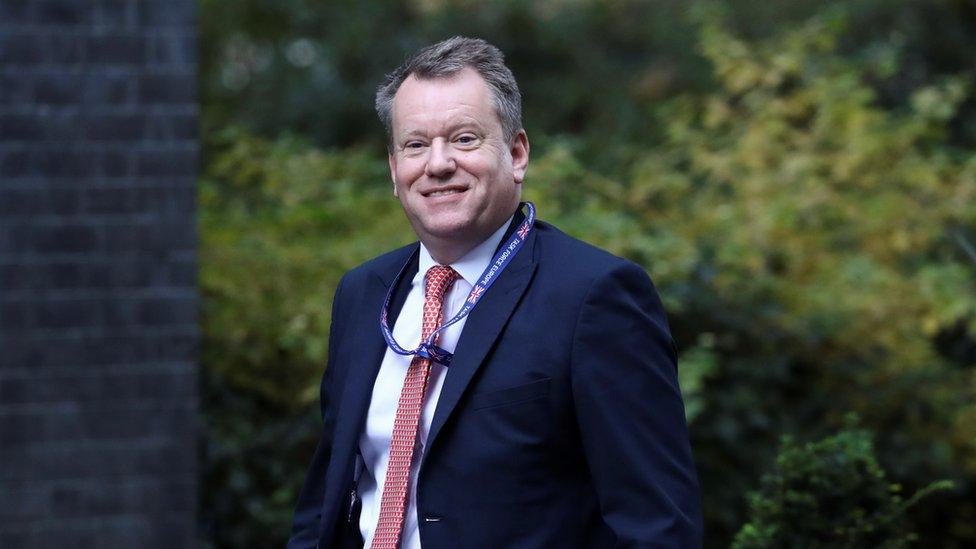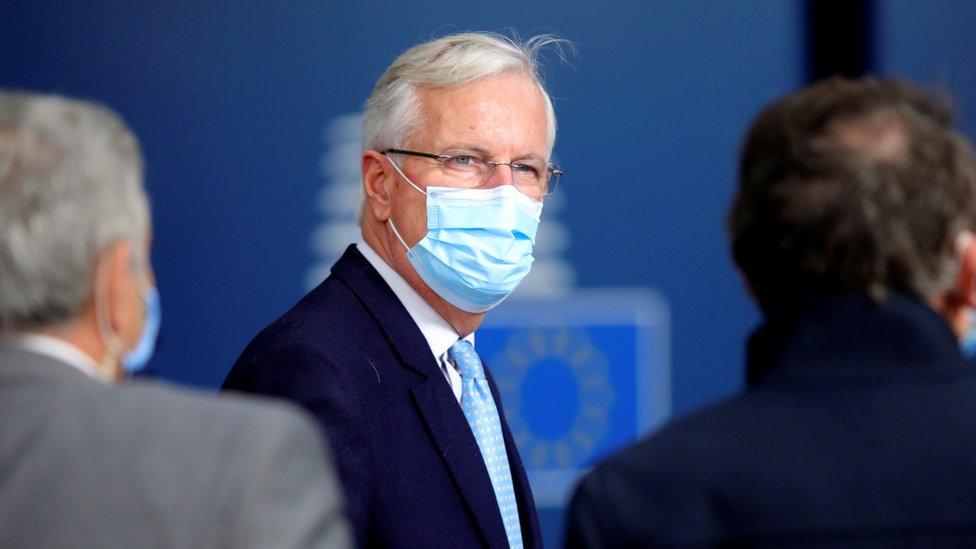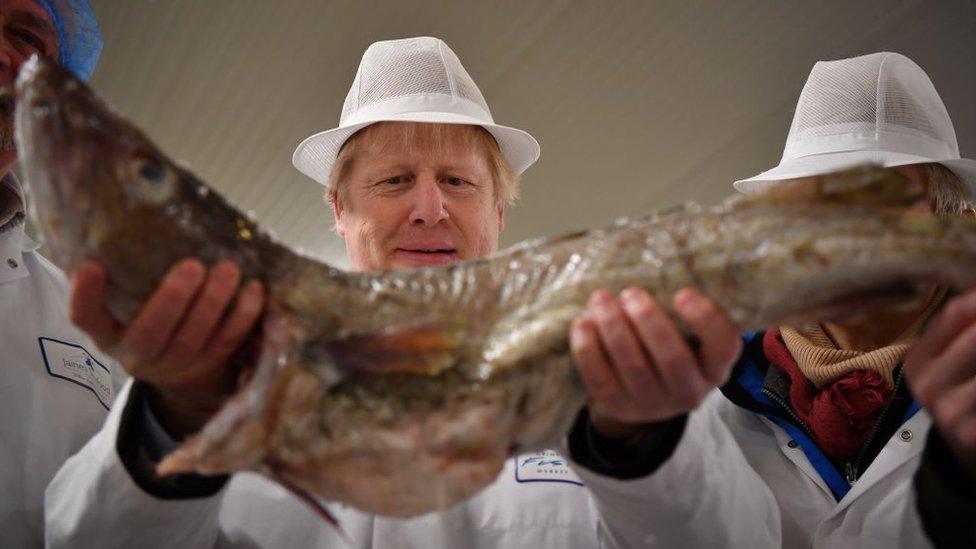Brexit: Standoff continues in trade talks after negotiators' call
- Published
- comments

Lord Frost has said the EU needs to "make clear" it is willing to change its approach.
Talks on a post-Brexit trade deal remain stalled, after a phone call between the two sides' negotiators failed to make a breakthrough.
UK negotiator Lord Frost said his call with the EU's Michel Barnier on Tuesday had been "constructive" but in-person negotiations could not resume.
No 10 has said a "fundamental change" in the EU's approach is required before face-to-face talks should continue.
Mr Barnier said the EU's door "remains open" following the call.
The Frenchman, who had proposed "intensified" talks in London this week, added: "we should be making the most out of the little time left".
Both sides are seeking an agreement to govern their trading relationship once the UK's post-Brexit transition period ends in January 2021.
Both sides are calling on the other to compromise ahead of the looming December deadline for a deal, with key areas of disagreement including fishing rights and post-Brexit competition rules.
The EU wants the UK to agree to rules limiting government help for business and industry, as well as a way for the EU to seek redress if they are broken.
The two sides are also haggling over how much European fishermen should be able to catch in British waters from next year.
Speaking before Tuesday's call, the prime minister's spokesman said the EU would need to show talks could be a "genuine negotiation rather than one side being expected to make all of the moves".
Summit fallout
Speaking in Brussels earlier, a European Commission spokesman said it was "pretty obvious" both sides would need to compromise in order for a deal to be done.
It follows a summit in Brussels last week where EU leaders called on the UK to "make the necessary moves" towards a deal.
Meanwhile, Prime Minister Boris Johnson has urged business leaders to prepare for the end of the transition period in December, in a conference call alongside Cabinet Office Minister Michael Gove.
BBC business editor Simon Jack said business figures on the call described it as "terrible", with one adding it had been "more of a lecture".

Mr Barnier attended last week's summit, where EU leaders called for talks to continue.
It comes as a government bill granting ministers the power to override sections of the UK's Brexit divorce agreement cleared its first hurdle in the House of Lords.
However, peers approved a motion by 395 votes to 169 to say the bill's controversial provisions to break international law would damage the UK's reputation.
The vote and the scale of the defeat is an indication that peers could seek to make changes to the legislation when they embark on line-by-line scrutiny of the proposals.
Transition deadline looms
By remaining in the bloc's single market and customs union, the UK has continued to follow EU trading rules during its post-Brexit transition period.
This 11-month period is due to end in December, and the UK has ruled out seeking an extension.
Formal talks began in March and continued throughout the pandemic, initially via video link before in-person discussions resumed over the summer.
If a deal is not done, the UK will trade with the EU according to the default rules set by the World Trade Organization.

YOUR WORK, YOUR MONEY: Is my bar business better off in Tier 3?
WHAT PLANET ARE WE ON: Sir David Attenborough talks about the impact of the pandemic on tackling climate change

- Published18 December 2020

- Published20 October 2020